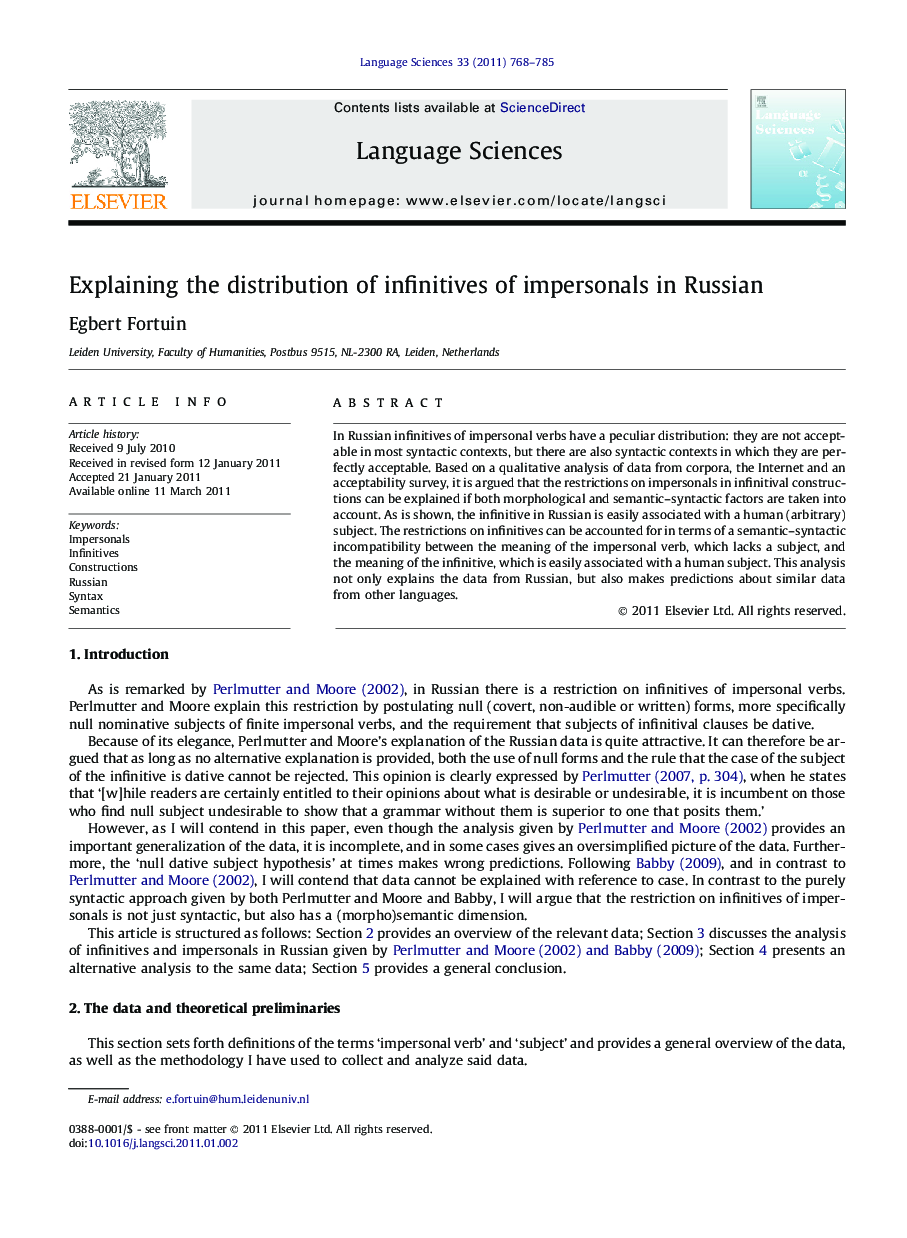| Article ID | Journal | Published Year | Pages | File Type |
|---|---|---|---|---|
| 1103466 | Language Sciences | 2011 | 18 Pages |
In Russian infinitives of impersonal verbs have a peculiar distribution: they are not acceptable in most syntactic contexts, but there are also syntactic contexts in which they are perfectly acceptable. Based on a qualitative analysis of data from corpora, the Internet and an acceptability survey, it is argued that the restrictions on impersonals in infinitival constructions can be explained if both morphological and semantic–syntactic factors are taken into account. As is shown, the infinitive in Russian is easily associated with a human (arbitrary) subject. The restrictions on infinitives can be accounted for in terms of a semantic–syntactic incompatibility between the meaning of the impersonal verb, which lacks a subject, and the meaning of the infinitive, which is easily associated with a human subject. This analysis not only explains the data from Russian, but also makes predictions about similar data from other languages.
